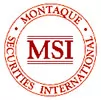Trusts provide the ability to secure a clients assets in an offshore tax-advantaged jurisdiction, while offering flexible structures tailored to the specific needs of the client. Trusts may also be designed to provide for the settlor during his or her lifetime, as well as for beneficiaries.
MSI places the client's funds or assets in the custody of trustees who are legally obliged to hold or use them for the benefit of specified persons, as determined by the trust document or deed. The assets held in trust are deemed to be the property of the trustees. This gives a measure of protection from other individuals and businesses. Offshore trusts are excellent vehicles for holding and distributing various types of assets such as property, investments, cash and collections.
The exclusive agreement between the client and the trustee allows the client to keep his or her own identity and that of the beneficiaries completely confidential.
Trusts are also flexible in that they can be used in estate planning and may help mitigate inheritance tax.
International trusts, upon MSI's professional advice, may also be used to transfer assets from one generation to the next, thus minimizing some of the more punitive effects of succession and death duties.
Trust Advantages:
- Protects the client's assets offshore, along with the certainty of confidentiality of ownership.
- Provides comfort of having the client's wishes implemented in the disposition of his or her assets.
- Provides the ability to retain, tax-free, the benefits of assets acquired prior to transfer between tax jurisdictions.
- Provides ability to withhold knowledge of the trust from both contingent beneficiaries and beneficiaries whose interest is not vested.
- Provides enjoyment of specific exemptions from taxes, in certain jurisdictions, including stamp tax for trusts in which the beneficiaries are "non-resident" for tax purposes.
- Allows the settlor to establish the role of protector to ensure the implementation of his/her wishes.
ASSET PROTECTION TRUSTS
MSI ensures that the selection and distribution of assets internationally are beneficial to the client from a tax perspective. MSI also arranges the most appropriate corporate or partnership structure and/or trust instrument for its client, and monitors the orderly conduct of its client's affairs.
Asset Protection Trusts provide the ability to ensure that a certain amount of the clients assets are removed from the reach of mischievous litigants/claimants.
A claim against the trust must prove that the settlor had the intent, at the time of the transfer of the assets to the trust, to commit a fraud against the specific claimant or, in fact assets are removed from the reach of mischievous litigants/claimants.
A claim against the trust must prove that the settlor had the intent, at the time of the transfer of the assets to the trust, to commit a fraud against the specific claimant or, in fact, that the settlor knew of the pending claim at the time of the transfer.
A claim against the trust must be brought before the courts within two years after the transfer of the assets into the trust. After that period the assets are securely protected.
A successful claim against the trust exposes the trust only to the extent of the claim and does not affect the remaining assets in the trust.
The Fraudulent Dispositions Act, the enabling legislation, provides the aforementioned powerful elements to Asset Protection Trusts as additional advantages to the already well-established benefits of trusts domiciled in an offshore tax-advantaged jurisdiction.
The content of this article is intended to provide a general guide to the subject matter. Specialist advice should be sought about your specific circumstances

